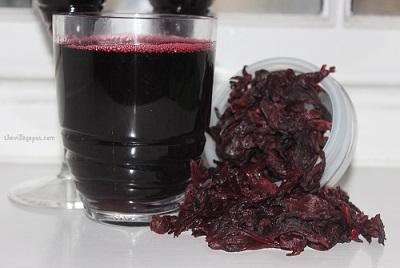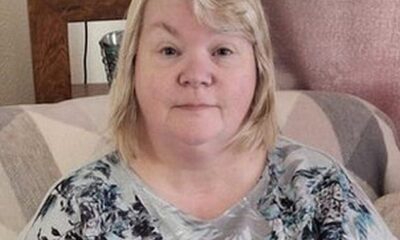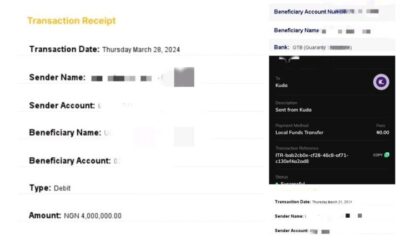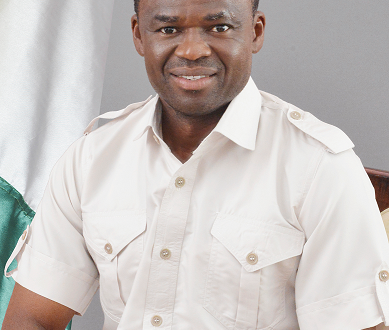Health
COVID-19 : Medical Laboratory Scientists Donate 200 Vials Of VTM, Other Items To Imo Govt
Published
4 years agoon
By
Editor
Imo branch of the Association of Medical Laboratory Scientists of Nigeria ( AMLSN) has donated 200 vials of Viral Transport Medium ( VTM) to the state government.
The laboratory scientists also donated 35,000mls of phenol-based hand sanitizers and a billboard for public sensitisation and enlightenment.
The donations were presented to the Imo COVID-19 taskforce in Owerri on Thursday.
READ ALSO: JUST IN: Many Feared Dead As Storey Building Collapses In Imo
Presenting the donated items, AMLSN chairman in Imo, Dr Kingsley Dunga, said that they were part of the association’s contributions to the fight against and prevention of the Coronavirus in the state.
Dunga said that the VTM are used to transport samples from their point of collection to their point of laboratory analysis without altering possible results of the tests, hence the role of medical laboratory scientists.
While encouraging laboratory scientists to conduct more tests, he urged the state government to equip health workers with Personal Protective Equipment (PPE) and provide them with hazard allowance as a form of encouragement.
” As part of our responsibility to help contain and prevent the spread of COVID-19, we consider it expedient to make contributions to assist the state government’s efforts in the fight against Coronavirus.
READ ALSO: COVID -19 : PSN Donates N500,000 Worth Of Drugs To Imo Government
” As frontline workers, we remain committed to this course and we urge government to continue to further equip us with PPE and hazard allowance as a way of encouraging us “, he said.
Receiving the items, chairman of the Imo COVID-19 taskforce, Prof. Maurice Iwu, thanked the laboratory scientists for the donation.
Iwu commended them for their efforts at educating the masses in addition to their active involvement in field, laboratory and treatment protocols.
He assured of government’s commitment to welfare of health workers during and after the pandemic.
READ ALSO: COVID-19 : Imo Govt Tasks Journalists On Improved Collaboration To Fight Epidemic
” I thank you so much for coming to the help of the state and for your quintessential contributions at this time.
” With our collective efforts, this virus will soon be a thing of the past. The battle is not yet over but for as much as we obey professional guidelines and contribute our quota, we will will win this fight “, he said.
You may like

By Silver Yeibake
Autism, commonly known as Autism Spectrum Disorder (ASD), is a neurodevelopmental disorder that affects communication, social interaction, and behavior. Autism is referred to as a spectrum condition since it can manifest in a variety of symptoms and abilities. While the actual cause of autism is unknown, evidence suggests that genetic and environmental factors interact to influence its development.
The risk factors include a sibling with autism, advanced age of parents, exposure to certain air pollutants and pesticides before birth, extreme prematurity, mothers with diabetes, immune system disorders or obesity, any difficulty with delivery leading to deprivation of oxygen to the baby’s brain, fever during pregnancy, lack of certain vitamins minerals during pregnancy, and certain genetic conditions, such as Down, fragile X, and Rett syndromes.
“Risk factors can not on their own cause a disease. However, they can increase the likelihood of that disease in a person.”
It is important to know that contrary to trending claims online, there is no scientific or medical evidence that vaccines or consumption of sugar are risk factors for autism.
READ ALSO: Kidney Stones: What You Need To Know
Autism is defined by difficulties in social interaction and communication. Individuals with autism may struggle to grasp social cues, maintain eye contact, and engage in typical back-and-forth conversations. Some people may also engage in meaningless, repetitive actions, such as hand-flapping or rocking, and have strong interests in specific areas.
It is essential to remember that autism is a lifelong diagnosis, but with early intervention and adequate care, people with autism can live fulfilling lives.
Autism treatment frequently includes behavioral therapy, speech therapy, occupational therapy, and social skills training. Each individual with autism is unique, thus interventions should be tailored to meet their personal needs and strengths.
In spite of the difficulties that autism can cause, many people with autism possess unique talents and abilities. Some people may succeed in fields such as music, art, mathematics, or programming, thus it is important for society to acknowledge and honor the qualities and achievements of people with autism.
In summary, autism is a complicated and diverse disorder that affects individuals in various ways. By raising autism knowledge, understanding, and acceptance, we can build a more inclusive society in which people with autism can thrive and attain their full potential.
Dr. Yeibake, Weriwoyingipre Silver.
Senior Registrar,
Faculty Of Pediatrics,
WACP
Health
Don Confirms ‘Zobo’ As Antihypertensive Therapy
Published
2 months agoon
March 10, 2024By
Editor
The Deputy Vice Chancellor, University of Nigeria Enugu Campus, UNEC, Prof. Daniel Nwachukwu, after research findings and clinical trials in both animals and human, has confirmed that Hibiscus Sabdariffa, popularly called ‘zobo’ drinks, has all the curative potentials as an antihypertensive therapy.
Nwachukwu, who is a Professor of Cardiovascular Physiology in the university, stated that the antihypertensive effectiveness of the Hibiscus Sabdariffa (zobo) was comparable to those of known antihypertensive drugs that are popular in the retail pharmacies, adding that zobo’s availability, cheapness and absence of side effects make it attractive as an alternative therapeutic agent in mind to moderate hypertensive subjects.
He however cautioned that care should be applied to avoid abuse in the consumption of Hibiscus Sabdariffa (zobo), adding that the therapy could interfere with some anti-malaria drugs while its high dose was also reported to have toxic effects on the liver and kidney.
READ ALSO: How Airline Pilots Fell Asleep Mid-flight – Safety Agency Reveals
Nwachukwu’s discoveries were contained his 201st Inaugural Lecture of the University of Nigeria with the topic “The Marriage Between the Cardiovascular System and Hibiscus Sabariffa: Let no One Put Asunder,” delivered at the moot court hall, Law faculty of the University of Nigeria, Enugu campus.
The DVC warned that Hibiscus Sabariffa consumption is not recommended for persons with low blood pressure because of its well established hypotensive action, advising that during combined therapy with antihypertensive drugs, the blood pressure, BP, must be carefully monitored.
He recommended that industrialists and investors should support large scale production of Hibiscus Sabariffa beverage and its distribution to rural communities in Nigeria, particularly since the raw materials (Hibiscus Sabariffa calyx and water) are cheap and readily available.
READ ALSO: Man Stabs Two Women To Death At A Mexico Varsity
According to Nwachukwu, “This lecture is intended to draw the public attention to our research efforts and unveiling the antihypertensive ability of Hibiscus Sabariffa which is called zobo in our common parlance. What we used for our studies was the same concentration as the locally produced zobo, and we found out that it exerted significant antihypertensive ability, in some cases even higher than the antihypertensive drugs and also did combination therapy with other antihypertensive drugs.
“What is significant is that this zobo is within us, it’s very cheap and it does not have any side effects compared to other antihypertensive agents. The raw material is just to buy zobo, prepare it under hygienic conditions, boil water and put it, sieve it and drink. It may have a sour taste but we do not encourage people to add things like pineapple or sugar in order to make it sweet, because once you do that, you are diluting or reducing its antihypertensive effectiveness.
“We have demonstrated it, both in animal studies and in humans. We are the first to do clinical trials, using mild to moderate antihypertensive Nigerians and we found it very useful. Some of the results show that one can actually use it and we equally saw that you can use it to prevent even diabetes from occurring because it reduces the rise in glucose level.”
READ ALSO: Adolescent Girls Face Risks Of Sexual Violence – UNICEF
Vice Chancellor of the University, Professor Charles Igwe while summarizing the lecture said that the lecture was in three dimensions; one on health grounds, another in academics and the third an economic value.
“Its economic in the sense that we can also begin to use what God has given us to make money. Maybe because God gave us everything in abundance in this country, we don’t recognize the simplest things God gave us in our environment. Therefore, what we are saying is that we should begin to, at all these pure water productions and incorporate zobo production so as to make money out of it.
“The university has made its contribution through our laboratories and it’s now left for the business community and the industries to come and buy into it and start widening it and make it very economic,” Igwe suggested.
Vanguard

By Silver Yeibake
Hi, did you know that Tuesday 12th March, 2024 is world Glaucoma day?Kindly avail yourself of this opportunity to learn about this important health issue as presented below:
Glaucoma is a dangerous eye disorder that damages the optic nerve, causing visual impairment or permanent blindness if not treated.
The optic nerve transmits visual information from the eye to the brain. Damage to this nerve might cause gradual visual loss that is not immediately obvious.
Worldwide, this disease affects 67 million people and contributes 6.7 million of blindness in this population. Glaucoma is the leading cause of blindness in the world.
The total number of cases is expected to increase to 111 million by 2040. Males are slightly more affected than females.
One of the basic causes of glaucoma is an increase in intraocular pressure (pressure within the eyeball), which can eventually damage the optic nerve (the nerve that makes seeing possible). This increase in pressure could be caused by an accumulation of aqueous humor, the fluid that nourishes the eye.
FROM THE AUTHOR: Food Poisoning: What You Need To Know
There are several forms of glaucoma, including open-angle glaucoma, angle-closure glaucoma, normal-tension glaucoma, and secondary glaucoma, each with unique characteristics and treatment choices.
Some of the risk factors for glaucoma include sustained elevation of intraocular pressure, family history of glaucoma, race (African, Asian), short-sightedness, long-sightedness, age over 50, previous eye injury or surgery, hypertension, diabetes mellitus, migraines, and prolonged steroid therapy.
Glaucoma symptoms may not appear until the problem has advanced sufficiently, therefore regular eye checks are essential for early detection. Blurred vision, eye pain, nausea, and light halos are some of the most frequent glaucoma symptoms. However, these symptoms might be mild or readily misinterpreted as other eye problems, emphasizing the significance of regular eye examinations.
Glaucoma treatment tries to reduce intraocular pressure and protect the optic nerve from further damage. This can be accomplished using a variety of approaches, including prescription eye drops, oral medicines, laser therapy, and surgical procedures. Treatment options are determined on the kind and severity of glaucoma, as well as personal characteristics such as overall health and medical history.
To summarize, glaucoma is a serious eye disorder that requires timely diagnosis and treatment to prevent irreversible vision loss. Regular eye examinations, early detection, and commitment to treatment plans are critical for protecting vision and eye health in glaucoma patients.
Thank you.
Dr. Yeibake, Weriwoyingipre Silver, a
Senior Registrar, Faculty Of Pediatrics, West Africa College of Physician (WACP), writes from Yenagoa, Bayelsa State.

Abuja School Closed For One Week Over Death Of Four-year-old

Generator Fumes Kill Mother, Son In Delta, Daughter Hospitalised

Air Peace, Seven Countries To Revive Bankrupt Caribbean Airline
Trending

 Headline4 days ago
Headline4 days agoPHOTOS: Moment 23-year-old Miss Ecuador Beauty Queen Is Gunned Down In Hail Of Bullets

 Metro2 days ago
Metro2 days agoKidnappers Sleep Off After Abducting Pastor’s Wife, Others In Ondo

 Headline2 days ago
Headline2 days agoICYMI: Pandemonium During Church Service As Man Pulls Gun, Attempts To Shoot Pastor [VIDEO]

 News3 days ago
News3 days agoJUST IN: SERAP Drags 36 Govs, Wike To Court Over N5.9tn, $4.6bn Loans

 Headline5 days ago
Headline5 days agoShock As Woman Who Visited Hospital For Scan Was Told She’s Dead

 Metro3 days ago
Metro3 days agoMan Dies On Top Of Married Woman In Akure

 Headline4 days ago
Headline4 days agoVIDEO: Arsenal Pay Tribute To 14-year-old British-Nigerian Fan Daniel Anjorin Killed In UK

 Headline4 days ago
Headline4 days agoFind The Man Who Stole $30000 From Me, Get $2000 Reward – Nigerian Man Cries Out

 Metro5 days ago
Metro5 days agoDelta Lady Dies After Friends Allegedly Pushed Her Into Pot Of Boiling Pepper [Photos]

 News4 days ago
News4 days agoWhy I Refused To Return Govt Vehicles – Ex-Edo Gov, Shaibu
























